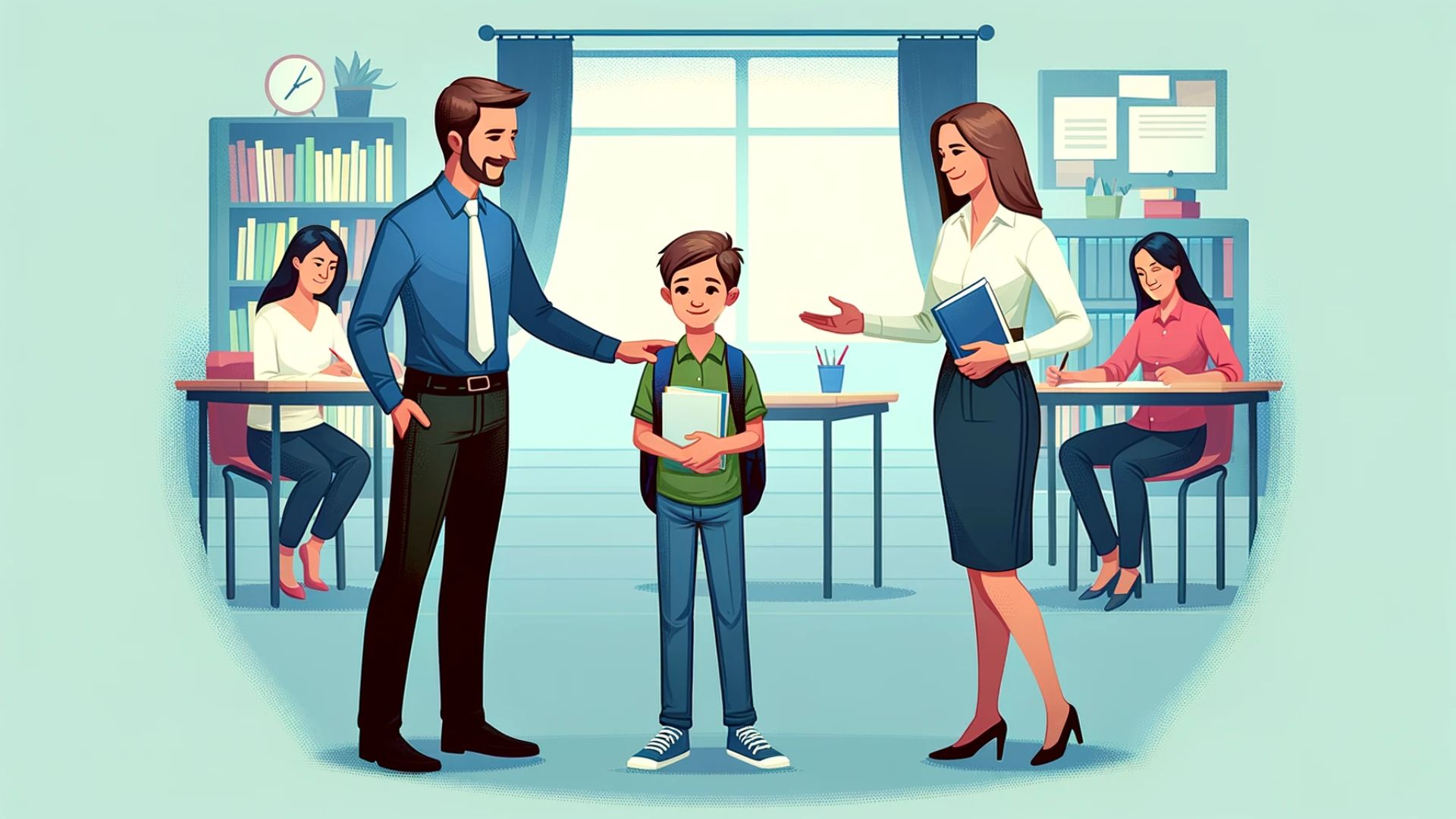- The Pillars of the Parent-Teacher Relationship
- Real-Life Examples: Collaboration in Action
- The Role of Effective Communication
- Navigating Challenges
- The Impact on Student Success
- Encouraging Parental Involvement
- Conclusion: A Team Effort
- Why Should You Care?
- Key Takeaways
- Keywords
- Frequently Asked Questions
- Myth Buster
- Let’s Talk
Imagine a world where parents and teachers work hand in hand, seamlessly guiding children toward academic success and personal growth. This isn’t just an ideal; it’s a practical goal that can be achieved through a strong parent-teacher relationship. By understanding and nurturing this partnership, you can significantly impact a child’s educational journey.
The Pillars of the Parent-Teacher Relationship
The foundation of a successful parent-teacher relationship rests on communication, mutual respect, and shared goals. Effective communication keeps both parties informed about the child’s progress, while respect ensures a collaborative environment. Shared goals align efforts towards the child’s overall development.
Real-Life Examples: Collaboration in Action
- Regular Check-ins: A parent regularly scheduling short meetings or sending emails to the teacher can stay updated on their child’s progress, helping to identify and address challenges early.
- Volunteering: Parents volunteering in school activities or classroom events can gain insights into the educational environment, fostering a stronger bond with the teacher.
- Parent-Teacher Conferences: These are not just formalities but opportunities to share insights and strategies tailored to the child’s unique needs.
The Role of Effective Communication
Clear and honest communication is crucial. This means not only sharing concerns but also celebrating achievements. Remember, teachers have valuable insights into children’s learning styles and social interactions, which can be incredibly beneficial for parents to understand.
Navigating Challenges
Challenges are inevitable. Differences in perspectives might arise, but resolving them respectfully and constructively is key. When issues occur, approach them with an open mind and a problem-solving attitude.
The Impact on Student Success
Children thrive when the adults in their lives are in sync. A collaborative parent-teacher relationship can lead to:
- Improved academic performance
- Better social skills
- Increased confidence and motivation
- A more personalized approach to addressing challenges
Encouraging Parental Involvement
Teachers should encourage parental involvement, making it clear that their input is valued and important. Likewise, parents should take the initiative to engage, be present, and show interest in their child’s education.
Conclusion: A Team Effort
You play a crucial role in shaping a child’s future. As a parent or a teacher, strive to build a relationship based on trust, respect, and a shared commitment to the child’s success. Remember, it’s a partnership where both sides have much to offer and much to learn. Take the first step – reach out, initiate a conversation, or volunteer. Every small action can lead to significant results in a child’s educational journey. Together, you can create a supportive and enriching environment that paves the way for their success.
Why Should You Care?
Understanding the dynamics of the parent-teacher relationship is essential because it directly influences a child’s educational and developmental journey. Effective collaboration between parents and teachers can lead to improved academic performance, better social skills, and overall well-being of students. For parents, educators, and anyone invested in the future of children, grasping the nuances of this relationship is crucial for fostering an environment that supports student success.
Key Takeaways
- Foundation on Communication, Respect, and Shared Goals: A successful parent-teacher relationship is built on effective communication, mutual respect, and aligning efforts towards shared objectives for the child’s growth.
- Regular Interaction is Key: Regular check-ins and active participation in school activities help parents stay informed and involved in their child’s education.
- Effective Communication is Crucial: Clear, honest, and respectful communication is essential for sharing concerns and celebrating achievements.
- Positive Impact on Students: A strong parent-teacher relationship leads to improved academic performance, better social skills, and increased student confidence and motivation.
- Navigating Challenges Together: Addressing differences in perspectives constructively and respectfully is vital for maintaining a healthy relationship.
- Encouraging Parental Involvement: Teachers should invite and value parental involvement, while parents should proactively engage in their child’s education.
Keywords
- Parent-Teacher Relationship: A dynamic interaction between parents and teachers, focusing on the child’s educational and personal development.
- Communication: The exchange of information between parents and teachers, crucial for understanding and addressing the child’s needs.
- Mutual Respect: Valuing each other’s role and contributions in the child’s education.
- Shared Goals: Common objectives set by parents and teachers for the student’s academic and personal growth.
- Regular Check-ins: Periodic meetings or communications to stay updated on the child’s progress.
- Parent-Teacher Conferences: Formal discussions focusing on the student’s academic and social development.
- Challenges: Obstacles or disagreements that arise in the parent-teacher relationship.
- Academic Performance: A measurement of a student’s progress in their educational curriculum.
- Social Skills: The abilities that enable students to interact effectively with others.
- Parental Involvement: Active participation of parents in their child’s education and school activities.
Frequently Asked Questions
How often should parents and teachers communicate?
Regular communication is key, but the frequency can vary depending on the child’s needs. Ideally, this could be monthly check-ins or as needed.
What should be discussed in parent-teacher meetings?
These meetings should cover the child’s academic progress, social interactions, behavior, strengths, challenges, and ways to support the child at home and in school.
Myth Buster
Myth: Parent-teacher communication is only necessary when there are problems.
Reality: Regular communication is essential, not just for addressing issues but for sharing positive updates and working collaboratively to support the child’s ongoing development.
Myth: Teachers don’t value input from parents.
Reality: Teachers often welcome and value parental insights as they provide a more holistic view of the child’s abilities and challenges.
Let’s Talk
- How have your experiences with parent-teacher relationships impacted a child’s education?
- What strategies have you found effective in fostering a strong parent-teacher partnership?
Feel free to share your thoughts and experiences in the comments. Your insights could be invaluable to others looking to strengthen their parent-teacher relationships!












0 Comments